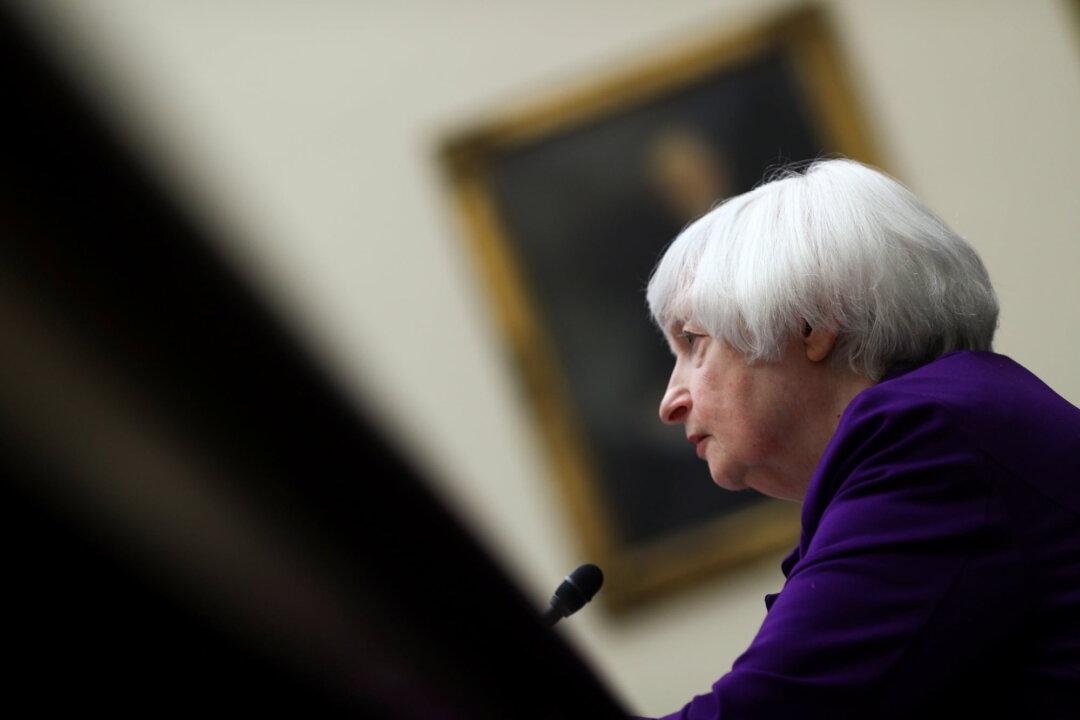Secretary of the Treasury Janet Yellen dismissed the possibility that the United States might enter into recession anytime soon while speaking at a press conference ahead of the Group of Seven (G-7) finance ministers meeting in Germany.
“We are in a global environment where there are significant risks and pressures, but I really don’t expect the United States to fall into a recession. I think Europe is perhaps a bit more, a bit more vulnerable and of course more exposed on the energy front than the United States is,” Yellen said during the May 18 press conference in response to a question as to whether the United States, Europe, and China could end up in some kind of synchronized recession.





